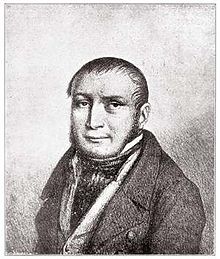Admittedly, selecting 50 great games from the history of chess might indeed be a bit too modest. After all, the ChessBase Mega Database contains no less than 6.8 million games, and if you want to give every official World Champion from Wilhelm Steinitz to Magnus Carlsen their due by showing only two games of each you already have 32 games - without taking players such as Morphy, Anderssen, Tarrasch, Schlechter, Rubinstein, Nimzowitsch, Boguljubov, Fine, Reshevsky, Bronstein, Najdorf, Keres, Geller, Stein, Portisch, Kortschnoi, Judit Polgar and many others into account. Not to mention contemporary players such as Aronian, Nakamura, Giri, Karjakin or So.
Therefore, a list with "50 games which every chessplayer should know" is necessarily incomplete and the selection very much a matter of taste and open to debate. But this should be okay if one does not aspire to present the 50 "absolutely best" or "most important" games of all times. In fact, it should be more important that the games are interesting, beautiful, historically important and entertaining - and after all, you can always add to the list.
So, let's begin with an entertaining classic that shows the power of the pawns. The game was played in 1834 and was the 16th game of a match between Louis Charles Mahé de Labourdonnais from France and Alexander McDonnell from Ireland, back then arguably the world's best players. It was part of a series of six matches Labourdonnais and McDonnell played from June to October 1834 in the Westminster Club in London and in the course of this series they played 85 games against each other. Labourdonnais won the marathon with 45 wins, 27 losses and 13 draws. The following game was particularly remarkable and is still a pleasure to watch.
Historical Notes
Alexander McDonnell was born on May 22, 1798 in Belfast, Ireland, and died September 14, 1835 in London. According to the Oxford Companion to Chess by Kenneth Whyld and David Hooper McDonnell was „the son of a doctor, spent some years in the West Indies and later worked in London as secretary of the Committee of West Indies Merchants". About McDonnell's chess style the Oxford Companion writes: „On occasion McDonnell's combinative play could be brilliant and imaginative, but his opening play (…) and his technique were inferior. (…) Whereas Bourdonnais played fast and with ease, McDonnell concentrated at length about his moves and retired from a playing session exhausted, sometimes 'walking his room the greater part of the night in a dreadful state of excitement'. His contemporaries believed that this long period of stress hastened his death from Bright's disease. (...) Unlike his great rival, McDonnell died wealthy. Besides chess he was interested in political economy, on which he wrote half a dozen books or pamphlets.“
Louis-Charles Mahé de Labourdonnais was born in 1795 (some sources give 1797 as the year of his birth - the exact date is not known) in Réunion where his grandfather had been governor, and died on December 13, 1840, in London. According to the Oxford Companion his family sent him "to the Lycée Henri IV in Paris where, in 1814, he learnt chess". The game soon became his passion and he spent days and nights in the famous Café de la Régence playing chess.

Louis-Charles Mahé de Labourdonnais (Photo: Wikipedia)
In 1836 Labourdonnais founded Le Palamède, the world's first chess magazine, but then he suffered several blows of fate. In 1838 he had a stroke and later fell ill with dropsy. One year later, in 1839, Labourdonnais lost his job and his income as secretary of the Paris Chess Club when the club was disbanded. With no regular income he gradually drifted into poverty as he had spent or lost the family fortune by misspeculation in the beginning of the 1830s.
In November 1840 he again travelled to London to play games at odds and for money at Simpson's Divan but soon became too ill to do so. He died December 13, 1840. Like his rival McDonnell Labourdonnais was buried at the Kensal Green cemetery.
(To be continued...)
























